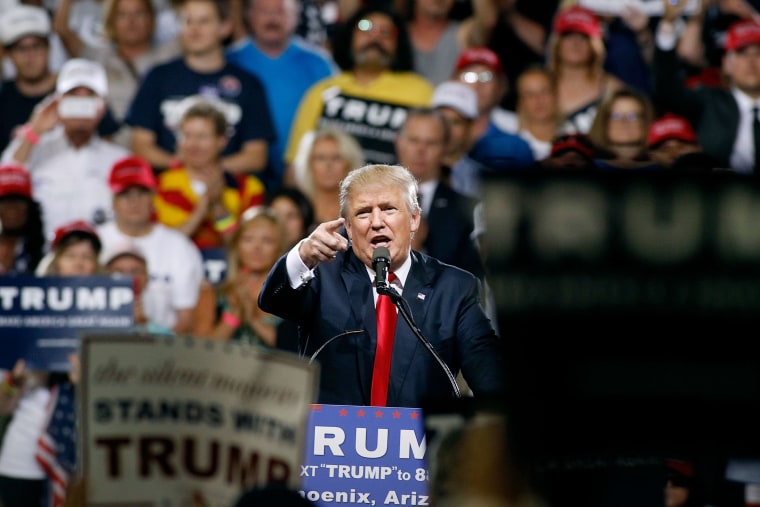On NBC's "Meet the Press" yesterday, the
New York Times' David Brooks
said the Republican health care plan is effectively "declaring war on their own voters." The language may seem a little over the top, but the truth of the matter is, Brooks
has a point.
The people who stand to lose the most in tax credits under the House Republican health plan tended to support Donald J. Trump over Hillary Clinton in the 2016 election, according to a new Upshot analysis. [...]The voters hit the hardest -- eligible for at least $5,000 less in tax credits under the Republican plan -- supported Mr. Trump by a margin of 59 percent to 36 percent.
Older Americans and rural voters -- which is to say, Donald Trump's most enthusiastic supporters -- tend to fare the worst under the Republican plan some are calling "Trumpcare."Center for Budget and Policy Priorities published a
related analysis last week, noting which states' residents would stand to lose the most. Of the 10 states that would fare the worst, literally all 10 were "red" states that Trump won last fall. This comports with a new
Wall Street Journal report that noted this morning, "The House Republican effort to overhaul the Affordable Care Act could hit many rural areas particularly hard, according to a new analysis, sharply increasing the cost for some residents buying their own insurance."CNBC's John Harwood's
analysis added last week, "'To the victor belong the spoils,' candidate Donald Trump reminded 2016 voters. But the House Republican health bill turns that old maxim on its head." There is, however, the question of whether Trump voters would balk at getting screwed over by the candidate they trusted and supported.I feel like one of the ongoing themes of Trump's presidency is betrayal: his voters believed his promises about "draining the swamp," taking on Goldman Sachs and other Wall Street elites, protecting Medicaid and other critical social-insurance programs, tackling the opioid addiction crisis, and so on. In far too many instances, the new Republican president is abandoning those promises, letting his core supporters down, and "Trumpcare" would make matters significantly worse.At least for now, however, the president's die-hard base is standing by him, leading some to argue that Republicans who'd fare the worst under the GOP health care plan would probably stick with Trump anyway, even after he undermined their health security.But I'm not so sure. Matt Yglesias' take
rings true:
It's certainly true that Trump voters might still support Trump all things considered, regardless of his health care plan, since they likely agree with him about guns, immigration, the environment, abortion, and other topics. But Trump probably didn't run around the country promising people lower deductibles, universal coverage, and no cuts to Medicaid for no reason at all. He said that stuff because it's popular.He broke with the Republican establishment on a key issue, soundly beat their candidates in the primary, and then won a general election boosted by considerable outsider credibility but an unusually low level of institutional party support. And now, in his first major legislative act, he's betraying that promise.
If Trump and his team are counting on there being no political consequences for these betrayals, they're placing an enormous bet that the Republican base will simply go along with their allies taking deliberate steps to make their lives harder.
